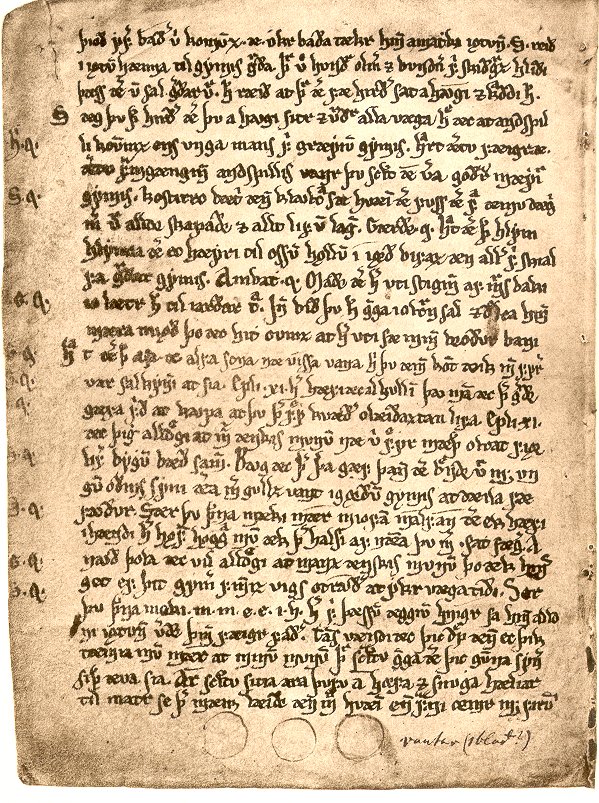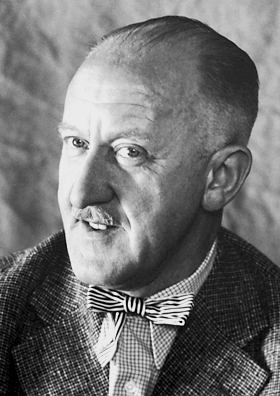|
Brynjólfur Pétursson
Brynjólfur Pétursson (15 April 1810 – 18 October 1851) was an Icelandic lawyer and government official. He was one of the '' Fjölnismenn'', a group of Icelandic intellectuals who spearheaded the revival of Icelandic national consciousness and gave rise to the Icelandic Independence Movement. Personal life Brynjólfur was born in Víðivellir in Skagafjörður and was one of the "Víðvellir brothers", the sons of profast Pétur Pétursson and his second wife, Þóra Brynjólfsdóttir. His brothers were Jón Pétursson, a judge, and Pétur Pétursson, a bishop. Brynjólfur died an unmarried man in Copenhagen in 1851, leaving no children. Education and career Brynjólfur graduated from Bessastaðir in 1828 and attained a degree in jurisprudence from the University of Copenhagen in 1837. He then became a Danish government official, working in the Danish ministry of finance. He became chief administrator at the Iceland office in Copenhagen following the abolition of ab ... [...More Info...] [...Related Items...] OR: [Wikipedia] [Google] [Baidu] |
Iceland
Iceland ( is, Ísland; ) is a Nordic island country in the North Atlantic Ocean and in the Arctic Ocean. Iceland is the most sparsely populated country in Europe. Iceland's capital and largest city is Reykjavík, which (along with its surrounding areas) is home to over 65% of the population. Iceland is the biggest part of the Mid-Atlantic Ridge that rises above sea level, and its central volcanic plateau is erupting almost constantly. The interior consists of a plateau characterised by sand and lava fields, mountains, and glaciers, and many glacial rivers flow to the sea through the lowlands. Iceland is warmed by the Gulf Stream and has a temperate climate, despite a high latitude just outside the Arctic Circle. Its high latitude and marine influence keep summers chilly, and most of its islands have a polar climate. According to the ancient manuscript , the settlement of Iceland began in 874 AD when the Norwegian chieftain Ingólfr Arnarson became the first p ... [...More Info...] [...Related Items...] OR: [Wikipedia] [Google] [Baidu] |
Konráð Gíslason
Konráð Gíslason (3 July 1808 – 26 January 1891) was an Icelandic grammarian and philologist, and one of the '' Fjölnismenn'', a group of Icelandic intellectuals who spearheaded the revival of Icelandic national consciousness in the 19th century. He was by royal appointment member of the 1849 Danish Constituent Assembly. Early life Konráð was born in Langamýri in Skagafjörður, Iceland. He was the oldest child of chronicler Gísli Konráðsson and his wife Efemía Benediktsdóttir. In his early years he was instructed in Danish, arithmetic and Latin by pastor Jón Konráðsson and his daughter, but otherwise received no formal schooling, herding sheep on his father's farm. At the age of 17 Konráð travelled south to seek employment in the fisheries, and worked in Álftanes over the summer as a manual labourer for Hallgrímur Scheving, a teacher at the Bessastaðir school. Soon Hallgrímur called on his young employee to assist him in philological analysis of ... [...More Info...] [...Related Items...] OR: [Wikipedia] [Google] [Baidu] |
19th-century Icelandic People
The 19th (nineteenth) century began on 1 January 1801 ( MDCCCI), and ended on 31 December 1900 ( MCM). The 19th century was the ninth century of the 2nd millennium. The 19th century was characterized by vast social upheaval. Slavery was abolished in much of Europe and the Americas. The First Industrial Revolution, though it began in the late 18th century, expanding beyond its British homeland for the first time during this century, particularly remaking the economies and societies of the Low Countries, the Rhineland, Northern Italy, and the Northeastern United States. A few decades later, the Second Industrial Revolution led to ever more massive urbanization and much higher levels of productivity, profit, and prosperity, a pattern that continued into the 20th century. The Islamic gunpowder empires fell into decline and European imperialism brought much of South Asia, Southeast Asia, and almost all of Africa under colonial rule. It was also marked by the collapse of the la ... [...More Info...] [...Related Items...] OR: [Wikipedia] [Google] [Baidu] |
Icelandic Writers
Icelandic refers to anything of, from, or related to Iceland and may refer to: *Icelandic people *Icelandic language *Icelandic alphabet * Icelandic cuisine See also * Icelander (other) * Icelandic Airlines, a predecessor of Icelandair * Icelandic horse, a breed of domestic horse * Icelandic sheep, a breed of domestic sheep * Icelandic Sheepdog, a breed of domestic dog * Icelandic cattle Icelandic cattle ( is, íslenskur nautgripur ) are a breed of cattle native to Iceland. Cattle were first brought to the island during the Settlement of Iceland a thousand years ago. Icelandic cows are an especially colorful breed with a wide va ..., a breed of cattle * Icelandic chicken, a breed of chicken {{disambig Language and nationality disambiguation pages ... [...More Info...] [...Related Items...] OR: [Wikipedia] [Google] [Baidu] |
1851 Deaths
Events January–March * January 11 – Hong Xiuquan officially begins the Taiping Rebellion. * January 15 – Christian Female College, modern-day Columbia College, receives its charter from the Missouri General Assembly. * January 23 – The flip of a coin, subsequently named Portland Penny, determines whether a new city in the Oregon Territory is named after Boston, Massachusetts, or Portland, Maine, with Portland winning. * January 28 – Northwestern University is founded in Illinois. * February 1 – ''Brandtaucher'', the oldest surviving submersible craft, sinks during acceptance trials in the German port of Kiel, but the designer, Wilhelm Bauer, and the two crew escape successfully. * February 6 – Black Thursday in Australia: Bushfires sweep across the state of Victoria, burning about a quarter of its area. * February 12 – Edward Hargraves claims to have found gold in Australia. * February 15 – In Boston, Massac ... [...More Info...] [...Related Items...] OR: [Wikipedia] [Google] [Baidu] |
1810 Births
Year 181 ( CLXXXI) was a common year starting on Sunday (link will display the full calendar) of the Julian calendar. At the time, it was known as the Year of the Consulship of Aurelius and Burrus (or, less frequently, year 934 ''Ab urbe condita''). The denomination 181 for this year has been used since the early medieval period, when the Anno Domini calendar era became the prevalent method in Europe for naming years. Events By place Roman Empire * Imperator Lucius Aurelius Commodus and Lucius Antistius Burrus become Roman Consuls. * The Antonine Wall is overrun by the Picts in Britannia (approximate date). Oceania * The volcano associated with Lake Taupō in New Zealand erupts, one of the largest on Earth in the last 5,000 years. The effects of this eruption are seen as far away as Rome and China. Births * April 2 – Xian of Han, Chinese emperor (d. 234) * Zhuge Liang, Chinese chancellor and regent (d. 234) Deaths * Aelius Aristides, Greek orator and wr ... [...More Info...] [...Related Items...] OR: [Wikipedia] [Google] [Baidu] |
Icelandic Literature
Icelandic literature refers to literature written in Iceland or by Icelandic people. It is best known for the sagas written in medieval times, starting in the 13th century. As Icelandic and Old Norse are almost the same, and because Icelandic works constitute most of Old Norse literature, Old Norse literature is often wrongly considered a subset of Icelandic literature. However, works by Norwegians are present in the standard reader ''Sýnisbók íslenzkra bókmennta til miðrar átjándu aldar'', compiled by Sigurður Nordal on the grounds that the language was the same. Early Icelandic literature The medieval Icelandic literature is usually divided into three parts: *Eddic poetry *Sagas *Skaldic poetry The ''Eddas'' There has been some discussion on the probable etymology of the term "Edda". Most say it stems from the Old Norse term ''edda'', which means great-grandmother, but some see a reference to Oddi, a place where Snorri Sturluson (the writer of the ''Prose Edda'') wa ... [...More Info...] [...Related Items...] OR: [Wikipedia] [Google] [Baidu] |
List Of Icelandic Writers
Iceland has a rich literary history, which has carried on into the modern period. Some of the best known examples of Icelandic literature are the Sagas of Icelanders. These are prose narratives based on historical events that took place in Iceland and the surrounding areas during the Saga Age. Most of these sagas were recorded during the 13th and 14th centuries, but the original authors and subsequent recorders of the works are unknown and thus not listed here. Although it has been suggested that Snorri Sturluson is the author of ''Egil's Saga''. The Saga tradition is not limited only to Iceland, and is an integral part of Norse mythology throughout the Nordic countries, Nordics. Another dominant form of Icelandic literature is poetry. Iceland has a rich history of poets, with many poets listed here. The early poetry of Iceland is Old Norse poetry, which is divided into the anonymous Poetic Edda, Eddic poetry, and the Skald#Skaldic poetry, Skaldic poetry attributed to a series o ... [...More Info...] [...Related Items...] OR: [Wikipedia] [Google] [Baidu] |
Icelandic Literary Society
The Icelandic Literary Society (Hið Íslenzka Bókmenntafélag), founded in 1816, is a society dedicated to promoting and strengthening Icelandic language, literature and learning. The society was founded in 1816, when the Icelandic independence movement was in its infancy, at the instigation of Rasmus Rask and Árni Helgason. Its stated purpose was "to support and maintain the Icelandic language and literature, and the civilization and honor of the Icelandic nation, by the publication of books or by other means as circumstances would permit."Halldór Hermannsson, ''The Periodical Literature of Iceland Down to the Year 1874,'' ''Islandica'' XI (1918)p. 26 The first meeting of the Copenhagen branch was held on 13 April 1816, and the first meeting of the Reykjavík branch on 1 August 1816. Rask was the first president of the Copenhagen branch; the first president of the Reykjavík branch (until 1848) was Árni Helgason. Jón Sigurðsson, an Icelandic cultural hero, served as preside ... [...More Info...] [...Related Items...] OR: [Wikipedia] [Google] [Baidu] |
Tómas Sæmundsson
Tómas Sæmundsson (7 June 1807 – 17 May 1841) was an Icelandic priest, and one of the '' Fjölnismenn'', a group of Icelandic intellectuals who spearheaded the revival of Icelandic national consciousness and gave rise to the Icelandic Independence Movement. According to author Daisy Neijmann, he was "one of the era's most fervent nationalists". Tómas is quoted by J. R. R. Tolkien as saying "''Málin eru höfuðeínkenni þjóðanna...''" (Languages are the chief distinguishing marks of peoples ...): Tómas travelled around Europe from 1832 to 1834, and he became the pastor in Breiðabólsstaður in Fljótshlíð in 1835. Among other things, Tómas wrote the fifth annual issue of the journal ''Fjölnir Fjölnir ( non, Fjǫlnir ) is a legendary king in Norse mythology said to have been the son of Freyr (Frey) and his consort Gerðr (Gertha). The name appears in a variety of forms, including Fiolnir, Fjölner, Fjolner, and Fjolne. He was claim ...''. References Exter ... [...More Info...] [...Related Items...] OR: [Wikipedia] [Google] [Baidu] |
Jónas Hallgrímsson
Jónas Hallgrímsson (16 November 1807 – 26 May 1845) was an Icelandic poet, author and naturalist. He was one of the founders of the Icelandic journal Fjölnir (journal), ''Fjölnir'', which was first published in Copenhagen in 1835. The magazine was used by Jónas and his fellow ''Fjölnismenn'' to promote Icelandic nationalism, in the hope of giving impetus to the Icelandic Independence Movement. Jónas remains one of Iceland's most beloved poets, penning some of the best-known Icelandic poems about Iceland and its people. Since 1996, Jónas's birthday has been officially recognised in Iceland as the ''Icelandic Language Day, Day of the Icelandic Language''. On 16 November each year, the ''Jónas Hallgrímsson Award'' is awarded to an individual for their outstanding contribution to the Icelandic Language. Biography Jónas was born in the north of Iceland, in Öxnadalur in Eyjafjörður. He was the son of Hallgrímur Þorsteinsson, a curate, and Rannveig Jónasdóttir. He w ... [...More Info...] [...Related Items...] OR: [Wikipedia] [Google] [Baidu] |



